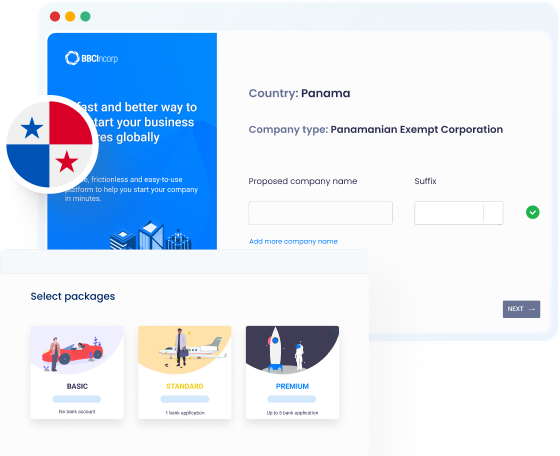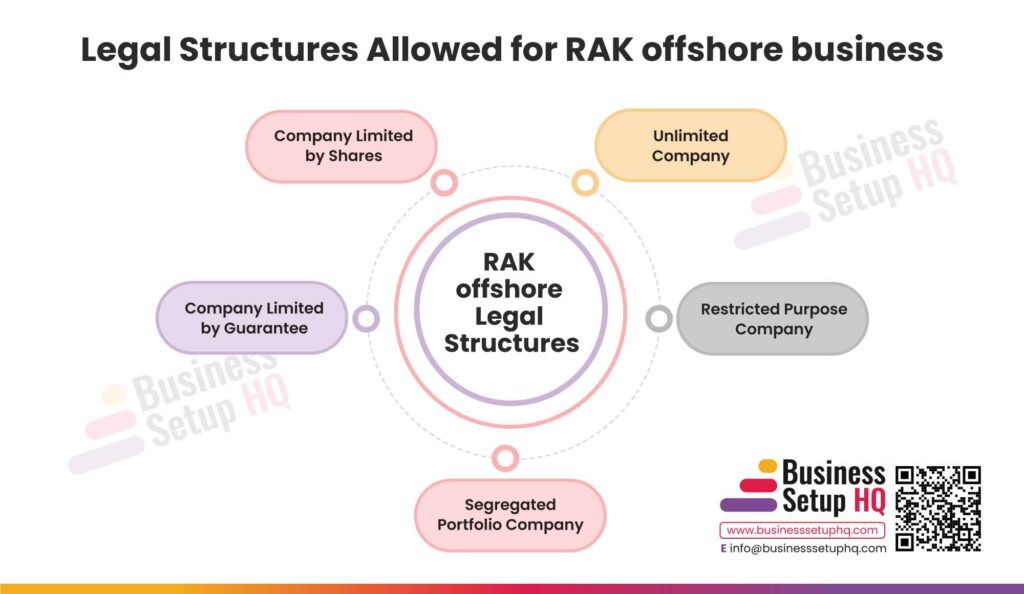Offshore Company Formation for E-Commerce and Web-Based Companies
Offshore Company Formation for E-Commerce and Web-Based Companies
Blog Article
Navigating the Globe of International Service: Insights on Offshore Company Formation
Offshore Company Formation provides a critical method for international organization procedures. It provides significant advantages, such as tax optimization and improved privacy. Nevertheless, the process is not without its challenges. Comprehending the complexities of different jurisdictions and governing requirements is important. As businesses take into consideration these options, the steps entailed can considerably affect their long-lasting success. What are the essential factors that can lead to effective offshore management?
Comprehending Offshore Companies: Interpretation and Function
Offshore companies have actually ended up being a prime focus in international organization discussions as a result of their one-of-a-kind lawful and financial structures. These entities are developed in jurisdictions beyond the owner's nation of home, frequently with favorable regulative settings. Usually, overseas companies offer numerous functions, such as possession defense, tax optimization, and boosted privacy. They can operate in numerous industries consisting of innovation, money, and profession, offering versatility for global operations.The defining characteristic of an overseas Company is its capability to carry out business globally while profiting from minimized tax obligation obligations and regulative worries. This structure attract business owners and capitalists seeking to diversify their portfolios and take care of threats successfully. In addition, lots of offshore jurisdictions provide rewards to attract foreign investment, resulting in a boost in the Formation of these companies. Understanding the definition and objective of overseas firms is essential for maneuvering with the intricacies of international commerce and funding circulation.
Key Advantages of Offshore Company Formation
The Formation of an offshore Company uses a number of compelling benefits that draw in investors and business owners alike. Among the primary advantages is tax optimization; numerous jurisdictions offer positive tax rates or exceptions, permitting businesses to make the most of earnings. Furthermore, overseas companies usually take pleasure in greater discretion, as lots of territories have strict personal privacy laws securing the identifications of Company proprietors and shareholders.Another considerable benefit is asset protection. Offshore entities can safeguard possessions from political instability and financial recessions in the owner's home nation. Moreover, these business can promote international trade, supplying very easy access to worldwide markets and streamlining cross-border transactions.The versatility in corporate structure likewise attract service proprietors, as overseas companies can be tailored to fulfill specific operational requirements. On the whole, the tactical Formation of an offshore Company can lead to boosted financial safety and security, operational efficiency, and a robust global presence.

Typical Challenges in Developing Offshore Entities
Developing offshore entities presents several difficulties that organizations need to browse. Trick problems include regulatory compliance, which can differ substantially throughout territories, and the effect of cultural distinctions on procedures. Additionally, companies should consider the dangers and costs connected with maintaining an overseas presence, which can influence total practicality.
Regulatory Conformity Issues
Navigating governing compliance concerns presents considerable challenges for services when they seek to develop offshore entities. Each jurisdiction has its own collection of policies and legislations, which can differ extensively and might be tough to browse. Companies commonly face obstacles pertaining to tax obligation compliance, anti-money laundering guidelines, and coverage demands. In addition, changes in worldwide tax obligation legislations can develop unpredictability, making it vital for organizations to stay updated on conformity obligations. Failure to stick to these laws can result in serious fines, including fines and reputational damage. Comprehending the lawful framework and involving with regional specialists is vital for successful offshore procedures, making sure that services can operate within the confines of the law while optimizing their global approach.
Social Distinctions Effect

Price Considerations and Risks
Guiding via the monetary landscape of overseas entity Formation offers various cost considerations and integral risks. First arrangement prices typically consist of lawful costs, enrollment expenses, and compliance costs, which can accumulate significantly. Furthermore, ongoing maintenance expenditures such as yearly fees and audit solutions must be factored in. Changing regulative atmospheres in various territories position threats, possibly leading to unanticipated expenses or legal difficulties. Companies may also encounter difficulties associated with tax, financial, and reputational issues, which can impact profitability and functional performance. Subsequently, possible entrepreneurs must carry out thorough due persistance and monetary forecasting to mitigate these threats and ensure lasting growth. Comprehending these price considerations is crucial for successful offshore organization ventures.
Steps to Set Up an Offshore Company
Developing an offshore Company involves several vital actions that require mindful consideration. Key aspects include choosing the appropriate territory and guaranteeing compliance with regional policies, alongside collecting essential paperwork. Recognizing these elements is necessary for a successful overseas organization setup.
Selecting the Right Jurisdiction
Choosing the ideal territory is vital for any individual seeking to establish an overseas Company, as it can significantly impact business's legal commitments, tax obligation liabilities, and operational convenience. Different elements ought to be considered, consisting of the political security, regulative atmosphere, and tax obligation incentives supplied by prospective jurisdictions. Popular choices usually consist of countries with desirable tax regimes, such as the British Virgin Islands or Cayman Islands, as a result of their low or zero tax obligation rates. In addition, the convenience of working and the track record of the jurisdiction can affect capitalist self-confidence and market accessibility. Eventually, an educated choice based upon comprehensive study will assure the offshore Company is placed for lasting success and compliance with global standards.
Needed Documents and Compliance
When establishing up an overseas Company, understanding the essential documents and conformity needs is important to ensure a smooth procedure. Secret papers typically include a certificate of unification, a offshore company formation memorandum and articles of association, and proof of identification for investors and supervisors. Some jurisdictions might require additional information, such as service strategies or bank references. Compliance with regional laws is crucial, which frequently includes appointing a registered agent and preserving an authorized office. Routine reporting and adherence to tax obligations must also be thought about. Failing to abide with these demands can cause charges or perhaps dissolution of the Company. Extensive preparation and assessment with legal specialists can aid browse these complexities efficiently.
Picking the Right Territory for Your Offshore Company
Exactly how can one figure out the most ideal territory for an overseas Company? Picking the right jurisdiction requires cautious consideration of several elements. The lawful and tax environment plays an essential function; territories with favorable tax obligation programs might improve company success. In addition, the political stability and financial climate of an area can impact lasting service viability.Another essential facet is the accessibility of economic solutions and financial infrastructure, which assist in smooth procedures. Possible company owner ought to likewise take into consideration the ease of doing service, consisting of the speed of enrollment and the clearness of regulations.Furthermore, language barriers and cultural distinctions can impact operations; as a result, straightening with a territory that lines up with business goals and individual convenience is crucial. Eventually, thorough research and professional advice can assist business owners in making an educated choice that aligns with their critical purposes.
Conformity and Governing Considerations

Ideal Practices for Handling an Offshore Company
Managing an offshore business requires tactical preparation and precise implementation to optimize efficiency and minimize dangers. Establishing a durable compliance framework is crucial to navigate differing policies across territories. Regular audits and threat evaluations aid determine possible vulnerabilities.Moreover, leveraging regional knowledge with partnerships with neighborhood specialists can improve functional efficiency and cultural understanding. Making use of technology, such as cloud-based administration systems, enhances interaction and data administration, allowing far better decision-making. Furthermore, keeping transparent economic documents and guaranteeing timely tax filings are important to support the Company's stability. Spending in team training and growth cultivates a competent labor force, advertising innovation and adaptability.Finally, developing clear efficiency metrics and essential performance indicators (KPIs) helps examine company progress and inform strategic adjustments. By sticking to these finest methods, business can efficiently handle their overseas procedures, making certain long-lasting success and sustainability in an affordable international industry.
Often Asked Questions
What Is the Price of Creating an Offshore Company?
The expense of forming an overseas Company differs widely relying on territory, lawful demands, and services required. Usually, costs can range from a couple of hundred to a number of thousand bucks, consisting of registration, compliance, and yearly fees.
How much time Does It Require To Establish an Offshore Entity?
The moment needed to establish an overseas entity varies substantially, normally varying from a few days to a number of weeks (offshore company formation). Elements influencing this duration consist of jurisdiction, needed documents, and the performance of the company entailed
Can Individuals Kind Offshore Companies Without an Organization Partner?
People can indeed form overseas companies without an organization partner. Many jurisdictions allow single-member entities, encouraging entrepreneurs to establish and handle their companies individually, while still benefiting from potential tax obligation advantages and legal defenses.
Exist Any Tax Obligation Benefits for Foreign Investors?

What Type of Companies Typically Use Offshore Companies?
Offshore business are frequently utilized by numerous sectors, including financing, modern technology, and e-commerce. These entities frequently offer objectives such as asset protection, tax optimization, and privacy, appealing to both specific business owners and international firms. Offshore business have come to be a focal point in international business conversations due to their special legal and economic frameworks. They can run in several sectors including trade, innovation, and finance, providing adaptability for worldwide operations.The specifying quality of an overseas Company is its ability to conduct company internationally while profiting from decreased tax obligations and regulative burdens. In addition, offshore business often appreciate higher confidentiality, as lots of territories have rigid privacy legislations safeguarding the identifications of Company owners and shareholders.Another substantial benefit is possession protection. These companies can help with global profession, giving simple accessibility to worldwide markets and streamlining cross-border transactions.The flexibility in company structure likewise allures to organization owners, as overseas business can be customized to fulfill specific functional needs. Selecting the appropriate jurisdiction is important for anyone looking to set up an overseas Company, as it can considerably influence the company's legal commitments, tax responsibilities, and operational convenience.
Report this page